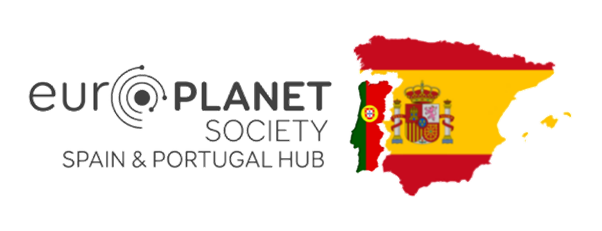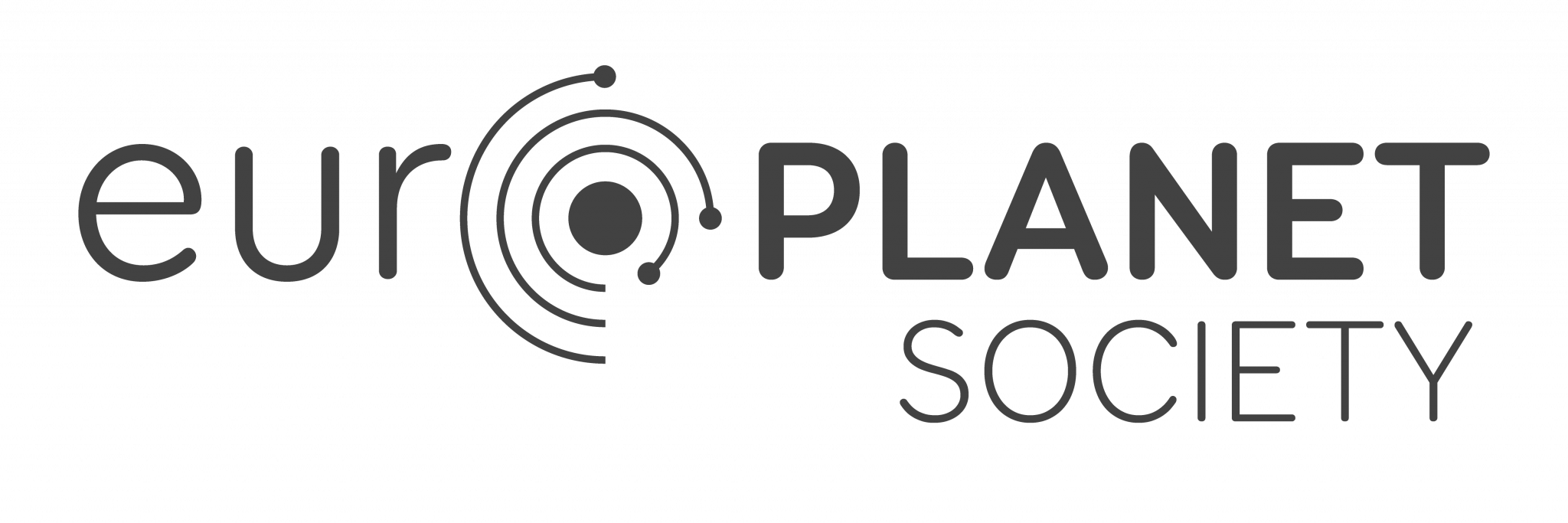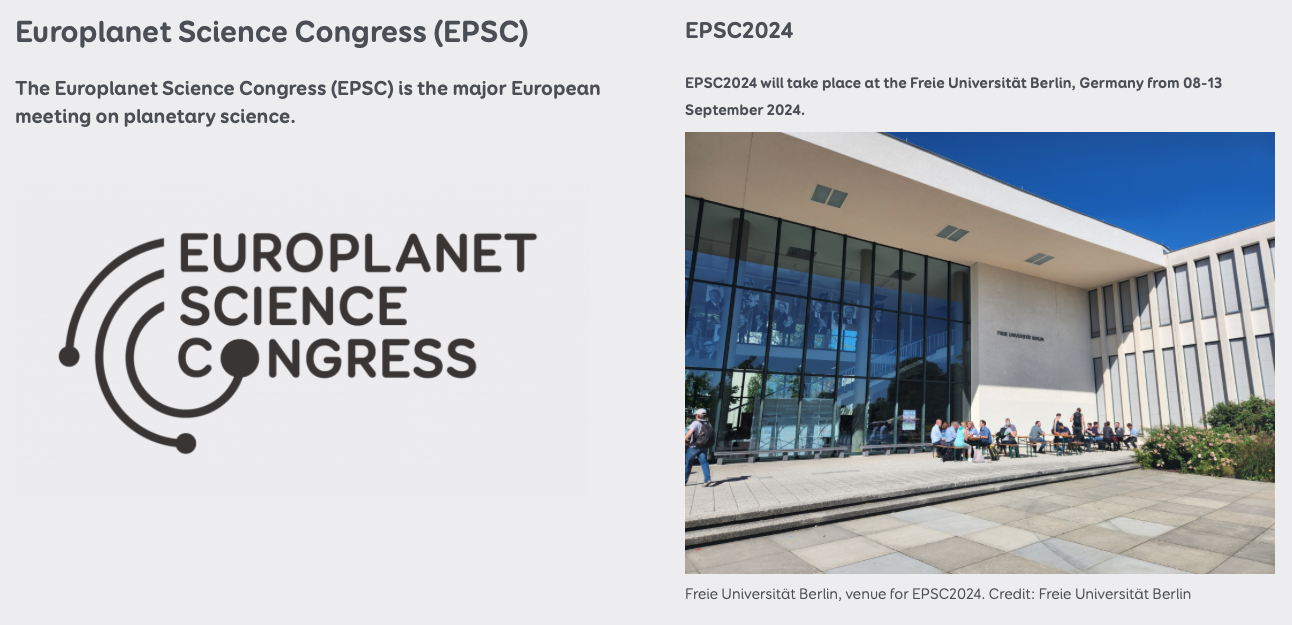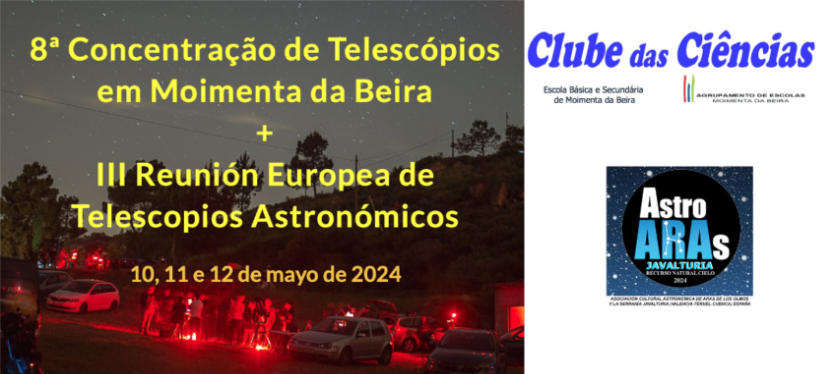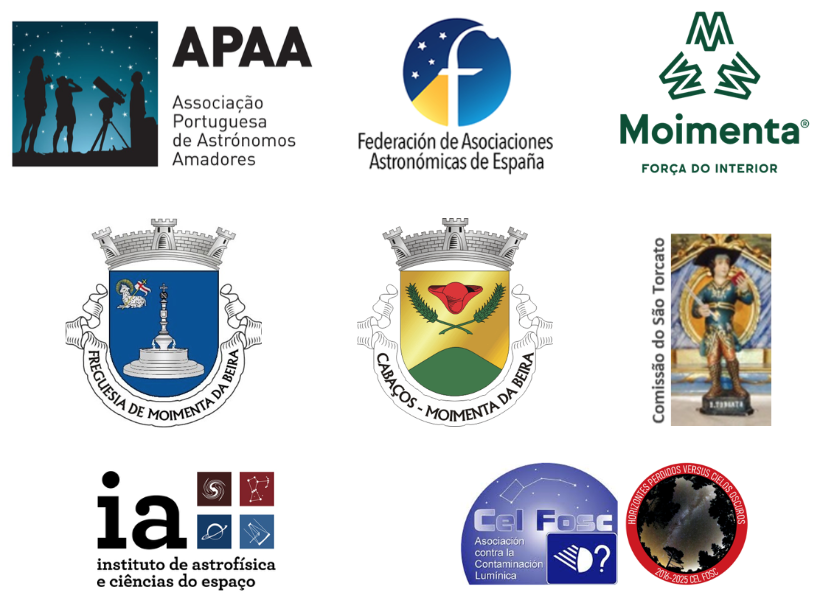Join
Europlanet Society
Space
Exploration
Members
Europlanet Society
Industry
& Stakeholders
Networking
Hub Activities
Facilities
Ground Based Telescopes
Outreach
Activities
Amateur
Community
Professional
Community
Scientific
Conferences
Nodo Ibérico Europlanet
El Nodo Ibérico de la Europlanet Society tiene como principal objetivo el apoyar y promover la investigación planetaria y el desarrollo tecnológico espacial en la comunidad científica planetaria española y portuguesa, reforzando la visibilidad y colaboración entre instituciones, industria y agencias espaciales, para impulsar la participación de nuestros científicos en programas de investigación y exploración planetaria a nivel nacional e internacional.
Ciencias Planetarias en España y Portugal
La comunidad científica planetaria de España y Portugal consta de más de >400 miembros, investigadores e ingenieros planetarios, distribuidos en >70 grupos de investigación, y >30 instituciones en la península ibérica.
TABLA DE GRUPOS / LISTA DE GRUPOS DE INVESTIGACIÓN PLANETARIA

La Europlanet Society es una asociación internacional que tiene como objetivo promover las ciencias planetarias, la exploración del sistema solar y cualquier otro campo relacionado en beneficio de la comunidad de desarrollo de ciencia y tecnología planetaria, fomentando la creación de nuevos conocimientos, promoviendo la educación, estimulando la innovación y mejorar la accesibilidad y la transparencia. La Sociedad es el organismo matriz del Congreso Científico Europlanet (EPSC), la reunión anual más grande sobre ciencia planetaria en Europa.
El Nodo Ibérico de la Europlanet Society tiene como principal objetivo el apoyar y promover la investigación planetaria y el desarrollo tecnológico espacial en la comunidad científica planetaria española y portuguesa, reforzando la visibilidad y colaboración entre instituciones, industria y agencias espaciales, para impulsar la participación de nuestros científicos en programas de investigación y exploración planetaria a nivel nacional e internacional.
El Comité de Coordinación del Nodo Ibérico Europlanet está compuesto por:
- Presidente: A. Cardesín Moinelo (ESAC)
- Vicepresidentes: R. Hueso (UPV) / P. Machado (IA-Lisboa)
- Secretaria: S. Fernández Menéndez (UniOvi)
- Representante de la Junta Directiva de EPS: J. De León (IAC)
- Representante EPS-Research Infrastructure: F. Gómez-Gómez (CAB)
- Representante de España: P. Benavidez (UA)
- Juventud ES: D. Morate (CEFCA)
- Política Espacial ES: C. García Sacristán (AEE)
- Industria Espacial ES: A. Catalán (PAE)
- Divulgación y comunicación ES: J. Á. Vaquerizo (ISDEFE)
- Representante de Portugal: P. Machado (IA-Lisboa)
- Juventud PT: D. Espadinha (IA-Lisboa)
- Política e Industria Espacial PT: M. Gonçalves (PT Space)
- Divulgación y comunicación PT: J. Retre (IA-Lisboa)
- Comunidad Amateur: J. Álvaro (FAAE/AstroCuenca)
- Diversidad: L. Parro (UA) / M. Ruiz-Pérez (CAB)
- Ética Espacial: S. Pérez-Hoyos / J. Hdez-Bernal (UPV)
- Instrumentación y tecnología: A. Morales-Inza (INTA)
- Iberoamérica: P. Benavides, R. Duffard, D. Morate, A. Cardesin
Contacto: spainportugal (arroba) europlanet-society.org
El 15 de Julio de 2024 en el parque de las ciencias de Granada, organizamos una sesión especial de ciencias planetarias, varios simposios y una reunión de grupo durante la XVI Reunión Científica de la Sociedad Española de Astronomía, para debatir sobre las últimas novedades de nuestra comunidad en España.
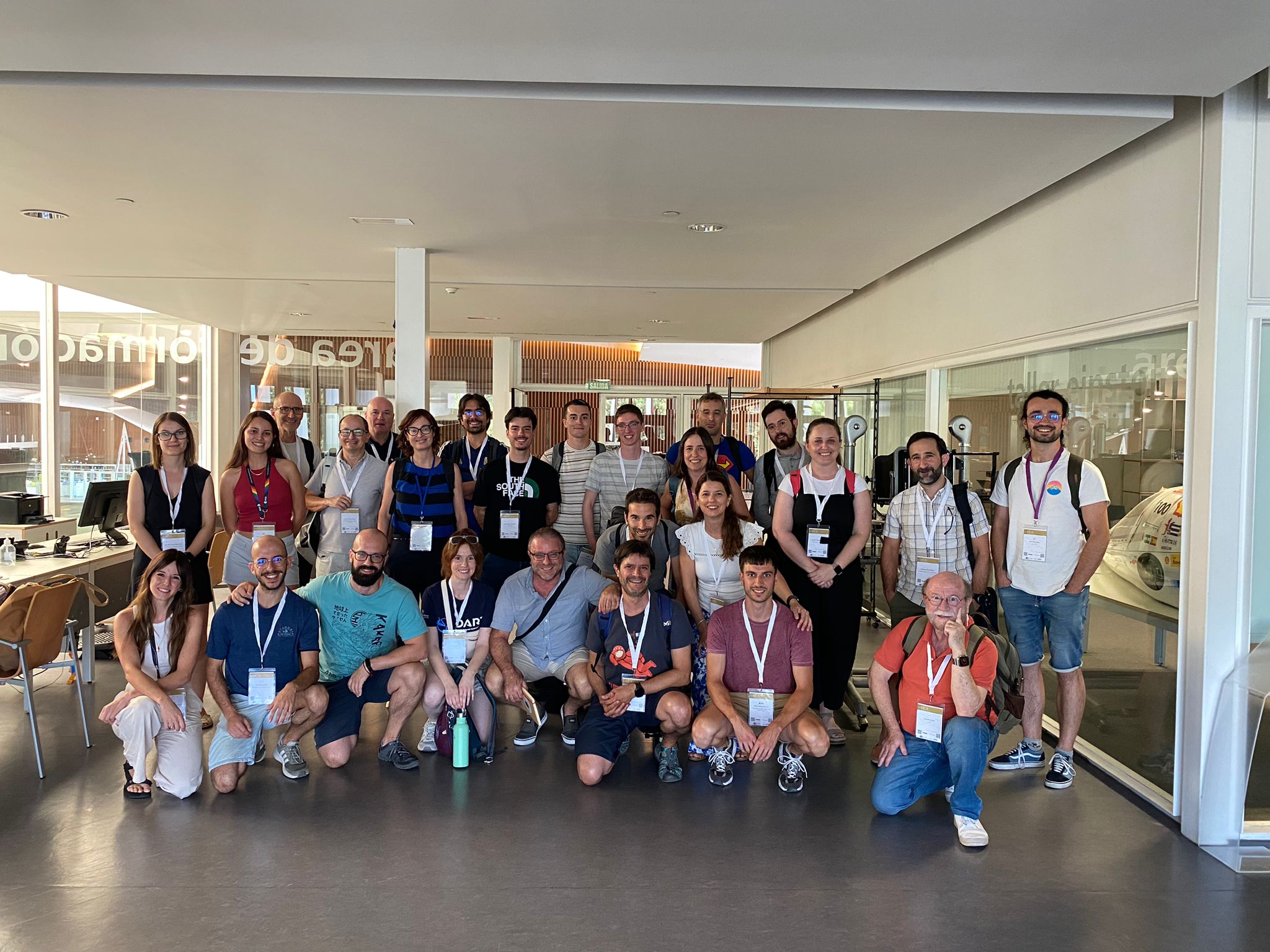
Del 8 al 13 de septiembre - Berlín
Jordi Camarasa, un astrónomo amateur español, codescubrió un cometa el pasado 5 de noviembre de 2023 desde el observatorio remoto “Moonbase” situado en Namibia, observatorio que comparte con su compañero Polaco Grzegorz Duszanowicz. Ambos astrónomos colaboran juntos en el proyecto Comet and Neo Searching Project desde 2022.
El nuevo cometa, confirmado por el Minor Planet Center, ha recibido la denominación C/2023 V4 (Camarasa-Duszanowicz). La suerte quiso que Jordi fuera el primero en detectarlo y en reportarlo al MPC, de ahí que su nombre vaya el primero en la denominación.
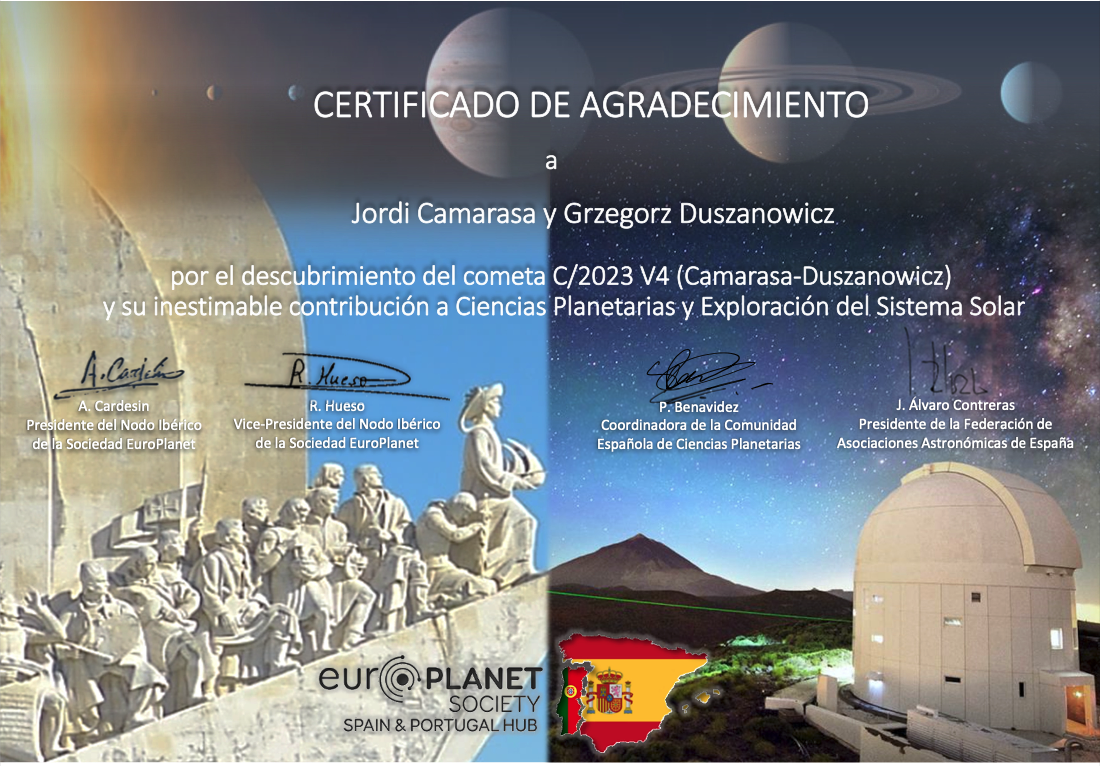
Desde el Nodo Ibérico de Europlanet estamos orgullosos de anunciar a los ganadores de los primeros premios para jóvenes investigadores planetarios en España y Portugal:
Premio Ibérico Europlanet "Abraham Zacut"
|
|
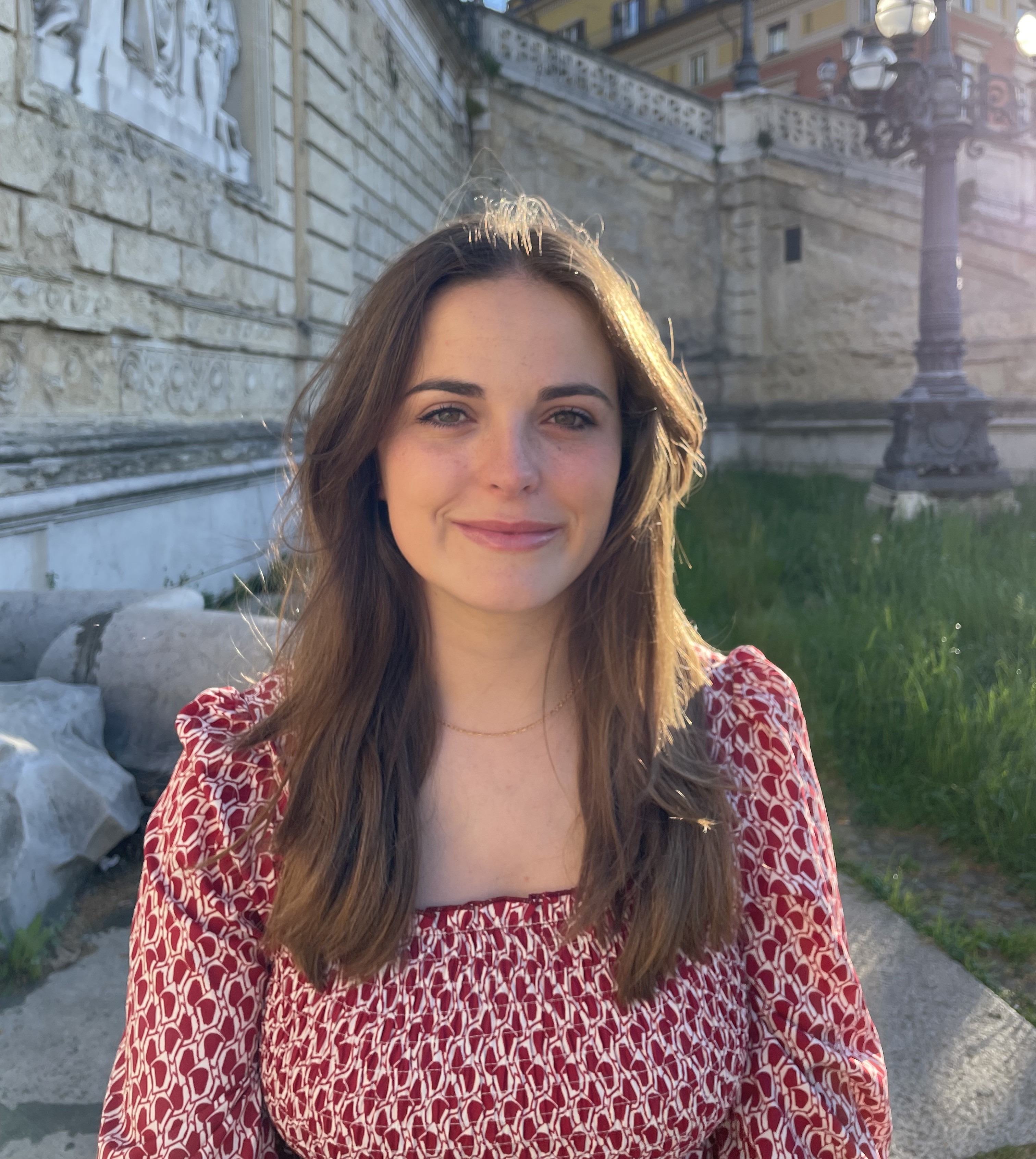 |
|
Premio Ibérico Europlanet "Pedro Nunes"
|
|
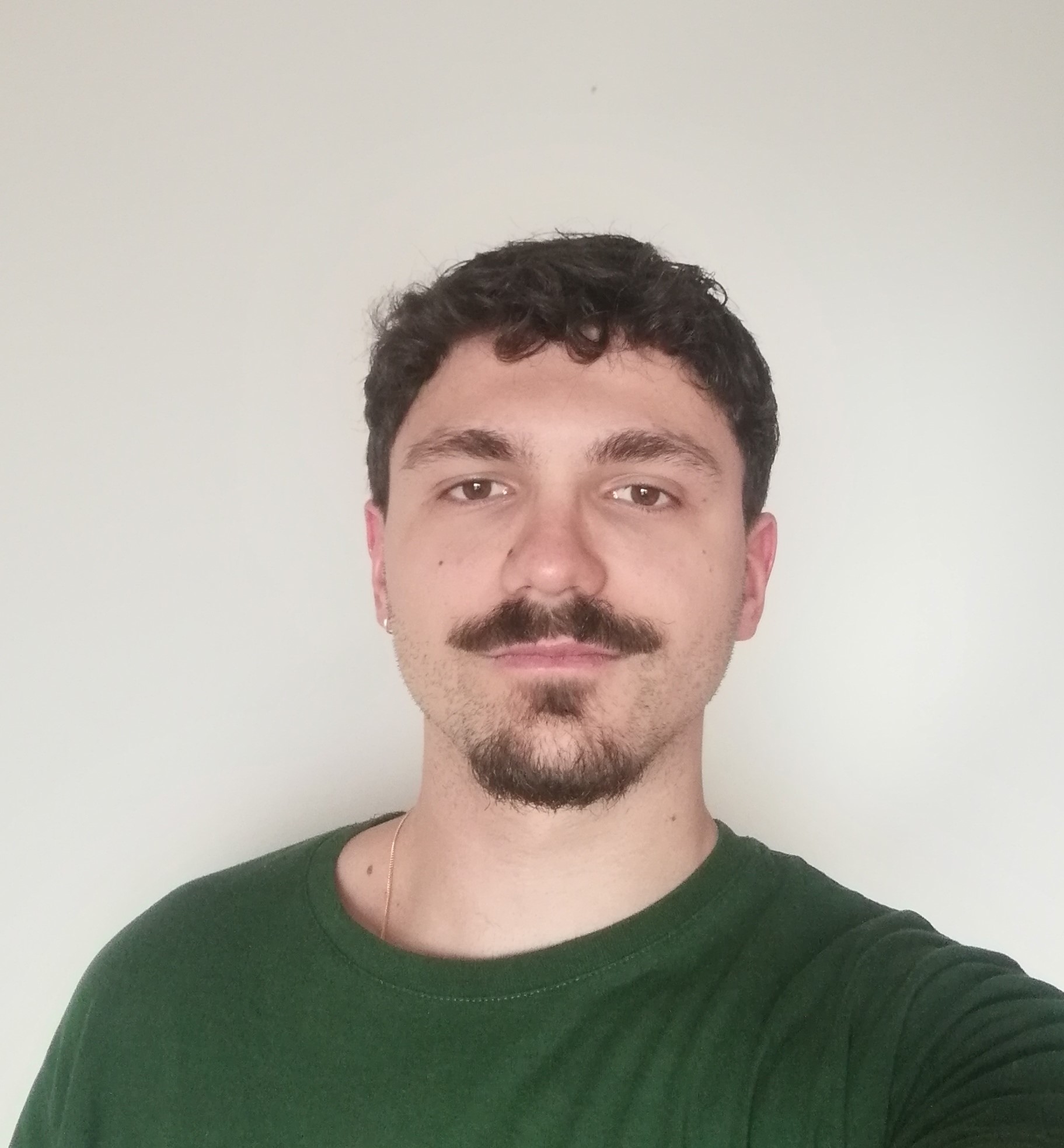 |
|
El nombre de estos premios hacen honor a astrónomos históricos de España y Portugal, modelos de colaboración ibérica que vivieron y trabajaron en ambos países. Sus contribuciones en astronomía e instrumentación jugaron un papel clave en la era de la navegación marítima y descubrimientos de importancia planetaria.
Damos la enhorabuena a los ganadores y agradecemos a todos los candidatos por su participación y por la altísima calidad de los trabajos presentados en este concurso, que esperamos que sirva de motivación para la nueva generación de científicos e ingenieros planetarios en España y Portugal.



